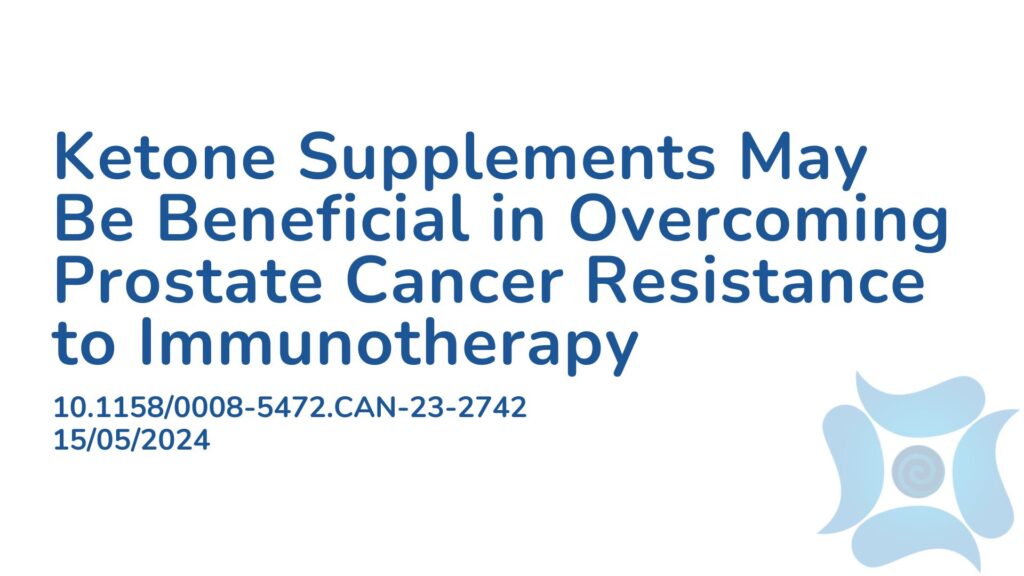Summary:
This study addresses the resistance of prostate cancer to immune checkpoint blockade (ICB) therapy. ICB therapy helps T cells kill cancer by blocking certain protein interactions. While effective in other cancers, it has shown little success in prostate cancer. The authors hypothesized that adding a dietary supplement might help, or following the keto diet as depriving cancer cells of carbohydrates could inhibit their growth. The study tested various groups: immunotherapy alone, ketogenic diet alone, a ketone supplement alone, the ketogenic diet with immunotherapy, the supplement with immunotherapy, and a control group. The most effective combination was the supplement with immunotherapy, significantly reducing cancer growth and extending lives. The results indicate that ketone supplements might overcome prostate cancer resistance to immunotherapy. The study found that ketones, produced during a keto diet, disrupt cancer cell metabolism, enabling T cells to attack. The supplement and immunotherapy combination reprogrammed the tumor immune profile and reduced neutrophil levels, which inhibit T cell activity and promote tumor growth. This discovery could have implications for other diseases involving neutrophil dysregulation, such as inflammatory bowel disease and arthritis.
Abstract:
Resistance to immune checkpoint blockade (ICB) therapy represents a formidable clinical challenge limiting the efficacy of immunotherapy. In particular, prostate cancer poses a challenge for ICB therapy due to its immunosuppressive features. A ketogenic diet (KD) has been reported to enhance response to ICB therapy in some other cancer models. However, adverse effects associated with continuous KD were also observed, demanding better mechanistic understanding and optimized regimens for using KD as an immunotherapy sensitizer. In this study, we established a series of ICB-resistant prostate cancer cell lines and developed a highly effective strategy of combining anti-PD1 and anti-CTLA4 antibodies with histone deacetylase inhibitor (HDACi) vorinostat, a cyclic KD (CKD), or dietary supplementation of the ketone body β-hydroxybutyrate (BHB), which is an endogenous HDACi. CKD and BHB supplementation each delayed prostate cancer tumor growth as monotherapy, and both BHB and adaptive immunity were required for the antitumor activity of CKD. Single-cell transcriptomic and proteomic profiling revealed that HDACi and ketogenesis enhanced ICB efficacy through both cancer cell–intrinsic mechanisms, including upregulation of MHC class I molecules, and -extrinsic mechanisms, such as CD8+ T-cell chemoattraction, M1/M2 macrophage rebalancing, monocyte differentiation toward antigen-presenting cells, and diminished neutrophil infiltration. Overall, these findings illuminate a potential clinical path of using HDACi and optimized KD regimens to enhance ICB therapy for prostate cancer.
Article Publication Date: 15/05/2024
DOI: 10.1158/0008-5472.CAN-23-2742



